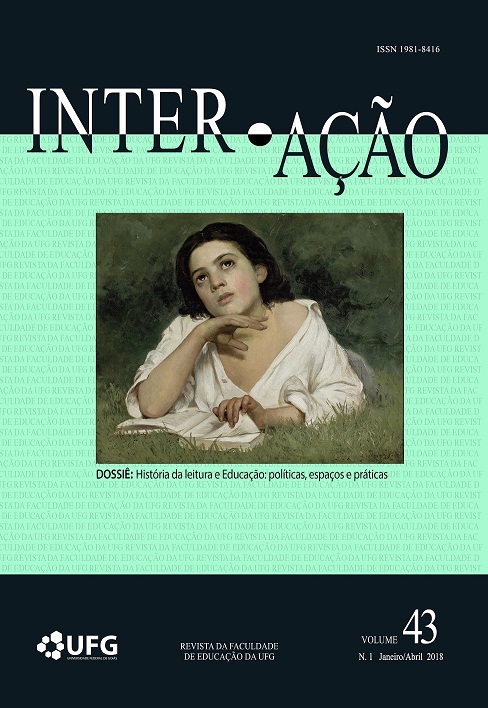Espaços e tempos de leitores e de leituras: a escola do campo em contexto
DOI:
https://doi.org/10.5216/ia.v43i1.50377Abstract
Ao trazer para o debate a formação de professores para a escola do campo, evidenciam-se diferentes temáticas, uma delas, a leitura. Para esse espaço, considera-se que, para além de apresentar métodos e técnicas de ensino, é preciso formar profissionais que reconheçam o seu papel político e social frente as demandas do campo. Nesse sentido, a leitura ocupa espaço importante na possibilidade de reconhecer-se como agente de transformação nesse território de busca incessante por direito à educação, as melhores condições de vida, de saúde e de trabalho. Para tanto, nesse estudo, apresenta-se como objetivo conhecer o espaço da leitura na escola, categoria que surgiu após a coleta de narrativas de vinte participantes, estudantes de uma licenciatura em Educação do Campo. Conclui-se que a leitura acontece em diferentes lugares, mas às vezes, a escola é o espaço que dá início a esse processo, e o professor é o primeiro a conduzi-lo, mas nem sempre, a escola cumpre o papel de formar leitores.
Downloads
Published
Versions
- 2026-02-02 (2)
- 2018-09-21 (1)
How to Cite
Issue
Section
License
Copyright (c) 2018 Inter Ação

This work is licensed under a Creative Commons Attribution-NonCommercial 4.0 International License.
Inter-Ação uses the Creative Commons Attribution 4.0 License for Open Access Journals (Open Archives Initiative - OAI) as the basis for the transfer of rights. Open access means making documents available on the Internet free of charge, so that users can read, download, copy, distribute, print, search, or link to the full text of documents, process them for indexing, use them as input data for software programs, or use them for any other lawful purpose, without financial, legal, or technical barriers.
Authors publishing in this journal agree to the following conditions:
1) Authors retain copyright and grant the journal the right of first publication, with the work simultaneously licensed under the Creative Commons Attribution License, which permits redistribution of the work with attribution and first publication in this journal.
2) Authors are permitted to enter into additional, separate agreements for non-exclusive distribution of the version of the work published in this journal (e.g., for publication in an institutional repository or as a book chapter), with attribution and first publication in this journal.
3) Authors are permitted and encouraged to publish and distribute their work online (e.g. in institutional repositories or on their home page) at any time before or during the editorial process, as this may generate productive changes as well as increase the impact and citation of the published work.















